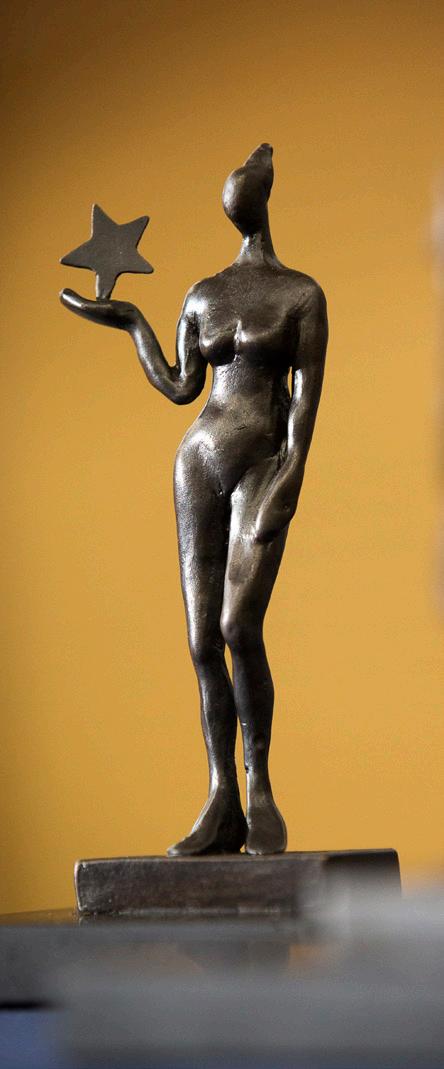
5 minute read
ANDREWWADSWORTH
to Warsaw when she started at the American School as a maths and PE teacher in 2019.
At Dio, she teaches health, PE, and sport and exercise science to a range of year groups.

“I’ve developed my teaching practices and understanding of learners from teaching students of more than 80 nationalities in the UK, Europe and the Middle East,” she says. “I hope to be able to engage my students with activities I’ve had success with overseas, and to engage them in a fun and memorable educational experience.”
Commercial experience gives students a real-life view
Dio’s new Head of Accounting, Chong Luo, is a native of China’s Jiangxi Province but has called New Zealand home for the past eight years.
After a decade working across the civil aviation, logistics, shipping and ship-building industries in finance and HR, Chong opted for a career change. He completed his master’s in accounting at Victoria University in 2018 and began teaching accounting at Otahuhu College, where the students’ diversity and rich cultural backgrounds convinced him his career change was the right decision.

and communicate these concepts effectively.
“I’m excited to incorporate realworld examples and practical case studies into my teaching, making it more relevant and engaging for my students.”
Author and playwright drawn to New Zealand
Watching the movie Whale Rider convinced Rohan D’Souza that he wanted to visit New Zealand.
“When I came here, I fell in love with its natural beauty and decided to make it my home,” says Rohan, who has been a teacher for the past six years and began his working life training for the priesthood in India.
In 2017, he moved to New Zealand and began teaching English at Te Wa¯nanga o Aotearoa, then religious education at Rosmini College before joining Dio as a religious education teacher.

Rohan says his upbringing has helped shape his teaching methods and what he can offer his students.
“I was born and raised in India, which is multi-ethnic, multilingual and incredibly diverse. I grew up and worked in an environment where we would celebrate Christmas, Diwali, Eid, Gurunanak Jayanti and Hannukah and all other festivals together. I hope to use these lived experiences to enhance my teaching practice at Dio.” health at Kaitaia College in the Far North.
During her OE, she taught at London’s prestigious Green School for Girls and won the Jack Petchey Award for Inspirational Teacher of the Year in 2016.
She then moved to Cairo and the Hayah International Academy where she became immersed in the International Baccalaureate curriculum and philosophy. Sandy carried that interest
“Having spent many years in a commercial environment, I yearned for a role that could provide a more meaningful and satisfying experience while allowing me to make a positive impact,” he says.
“Teaching seemed the perfect fit as it offered the opportunity to shape and inspire the next generation, and connect with the local community, which I find both fulfilling and rewarding.”
Chong’s business experience has given him the confidence and skills to analyse complex business cases
Rohan has published two novels, a series of short stories and several plays.
Drawing from the Swedish education system
A thirst for travel and languages propelled Auckland-based English teacher Nicky van Duyn to travel to Sweden 12 years ago. There she experienced the renowned Nordic teaching system and gained valuable international experience. Planning to go for a year or two, Nicky ended up staying for nearly 10. She became head of the English department at one of Sweden’s top international schools and had three children (with her husband, Dio English teacher Kim Signell).
“My international experience has given me a greater understanding of English and how it’s learnt as a second language,” says Nicky. “This helps particularly when teaching bi-lingual students.
“I’ve adapted some of the techniques and styles of the Swedish education system to work in my New Zealand classroom.”
Nicky has written and illustrated a series of children’s books in both English and Swedish for her family and friends.
A win-win for Nordic father of three
English teacher Kim Signell grew up in the southwestern archipelago of Finland – a small group of picturesque islands in the Baltic Sea.
After gaining master’s degrees in education and English linguistics, Kim began teaching English as a second language at Raoul Wallenberg Secondary School in Uppsala, near Stockholm.
“It’s a tiny school with about 250 students,” he says. “I really enjoyed working with teenagers – they always surprise you with new points of view. That age group can be challenging, but they also give you so much energy and warmth. If you show them you care, they’ll respond in kind.
“This feels like a win-win situation, where I can both impart my outlook on teaching and learn new things from my colleagues here at Diocesan.”
Kim hopes to share his love for literature with his students. He laments the fact that children don’t read as much today, but says Diocesan is doing a fantastic job promoting reading to the students. “Even though I miss my own family, I know we made the right decision in moving to New Zealand,” he says. “I feel incredibly welcome, and I couldn’t be happier that my children get to grow up with their wha¯nau here in Auckland.”
Teacher trainee brings heavyweight science and research expertise
Former senior research scientist Andrew Wadsworth has joined Diocesan’s cohort of trainees under the Auckland Schools’ Teacher Training Programme (ASTTP), which embeds student teachers full-time in their chosen school.
The programme provides real-world experience and mentoring, plus financial support in the form of fee costs and a stipend.
For the past six years, Andrew has been a senior research scientist at Douglas Pharmaceuticals, New Zealand’s largest privately owned pharmaceutical and healthcare company.
As a member of the new product development team, he worked on drug treatments for bowel and cervical cancer, acne, depression, and wound healing.
Prior to that, he had spent 10 years at the University of Auckland working closely with Dio alumna Distinguished Professor Dame Margaret Brimble. Under her mentoring, Andrew completed a PhD in organic chemistry before becoming a research fellow.
After nearly 20 years in the academic, research and scientific areas, he decided it was time to add some variety and creativity to his work. The year-long training programme lets him move between year groups and observe teaching methods and academic delivery as he works in Dio’s science department.
Andrew believes his scientific and research background will bring a realworld view to his teaching and hopes it will inspire students towards a career in those areas.
“Having worked in both academia and industry, I’ve got a good idea of where science can take you,” he says. “I can give students a real-world understanding of how science research works in New Zealand.”
Whānau-based approach key for Mātauranga Māori teacher trainee
Kali Haenga (Nga¯ti Porou, Te Wha¯naua-Apanui, Ngai Tahu) has also joined Diocesan’s cohort of trainees under the ASTTP. Previously, trainees needed an undergraduate degree, but the programme now welcomes nongraduates in certain areas, including Ma¯tauranga Ma¯ori and technology.
Kali is assisting with te reo Ma¯ori in Dio’s Te Whare Huia faculty, where she’s been a support person for the past two years, and a kapa haka tutor at Dio since 2019.
Te Whare Huia embraces Ma¯ori knowledge, including the teaching of te reo Ma¯ori, kapa haka and Ma¯tauranga Ma¯ori, and launched as a faculty in 2021.
Gisborne-born Kali grew up learning te reo Ma¯ori and tikanga and attended her ko¯hanga reo from age three. She studied School Certificate (NCEA Level 1) te reo Ma¯ori at Te Kura Reo Rua o Waikirikiri and took several core subjects in te reo Ma¯ori at Lytton High School in Gisborne.
After working in banking in Auckland, she headed overseas with jobs in London, Tonga and Australia. During a career break to have her children, Kali held various community roles, including at the O tara Budgeting Service.
Diocesan te reo Ma¯ori teacher Ashley Pihema convinced Kali to apply for a position assisting with the Reo Ma¯ori programme and kapa haka at Diocesan. She says Kali’s deep-rooted knowledge is a treasured asset to the faculty.
“Becoming a qualified teacher means her knowledge will be recognised, valued and accredited by the system,” she says.
Dio’s ha¯pori (community-based) approach is a key part of Kali’s passion for her role.
“The whole school community has been so supportive,” she says. “I'm grateful to be a part of Te Whare Huia as it grows and develops as a place of learning and becomes embedded as tikanga of Dio.”










